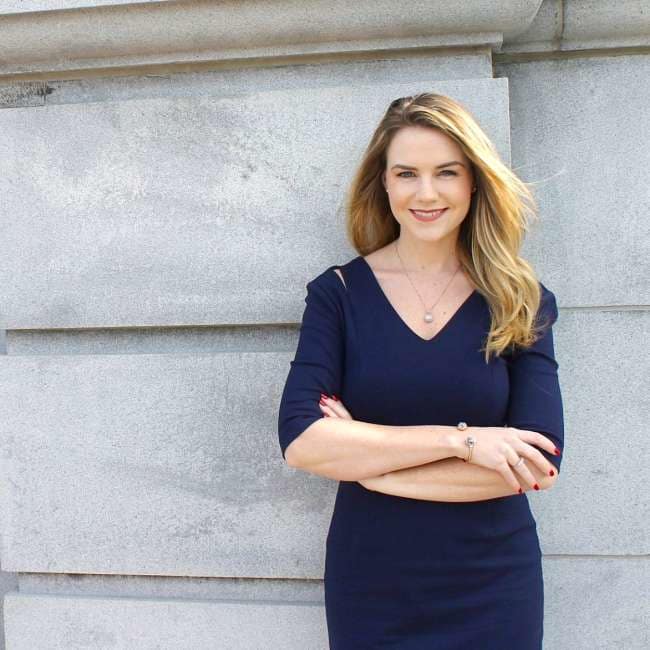When Audrey Henson was selected as a Congressional intern while attending the University of South Florida, it changed the trajectory of her career and ultimately her life.
She was placed in a few House offices as well as the Office of Senator Marco Rubio. But her journey to the Hill was not easy. Her university had no pipeline to Capitol Hill. And when Henson researched DC based internship programs, she was shocked to learn a summer in DC averaged nearly $10,000.
For the privileged few, $10,000 was a drop in the bucket. But for the average American family, it was a major investment that often meant the end of the line.
Henson decided to skip the structured program and apply on her own. She took unpaid internships and paid her way with loans and part-time jobs.
Although Henson had to make it on her own, all was not lost. Those internships opened her eyes. And at that moment she decided to launch College to Congress— a nonprofit that gives college students the necessary political access and financial means to complete an internship on Capitol Hill.
The organization covers the costs associated with unpaid internships, like transportation to and from D.C., a Metro stipend, daily meal stipend, and a professional wardrobe stipend.
“I always thought the hardest part of the process was getting a job with no connections,” says Henson.” But the hardest part is finances.”
“College to Congress helps take away that burden so interns can represent themselves confidently.”
Who Qualifies for College to Congress?
“Our program helps students who otherwise would never get this experience. To make sure we are helping the right people we require our applicants to be Pell Grant eligible, have a minimum GPA of 3.0, and complete a competitive application process.”
“With over 40 Members of Congress on both side of the aisle on our Congressional Host Committee, it’s clear that students want to intern in Congress, and Members want to host them.”
“I’m committed to making Congress as diverse as the country it represents.”
“This summer we were able to send 6 students from across the country to intern on Capitol Hill. I plan to send at least 15 next year and up to 100 students in the coming years. I’m hoping to convince others to give and to make Congress as diverse as the country it represents.”
There Are More Ways To Jump Into Politics Than You Think
“Right now is a great time to seek a job in politics at large,” says Eric Lundy of Inclusv.
“Organizations get an increase in funding in campaign years to engage voters. There is an informal yet direct correlation between campaign staff and working for that elected official should they win that campaign.”
Right now, professionals of color can submit a resume to Inclusv’s talent database for training and job matching.
“This is a hands-on approach to helping people of color,” says Lundy. “Everything is free. From resume workshops to job fairs and mock interviews, we want to make sure those who have the talent get their resume across.”
“Campaigns need a little bit of everything. There is increasingly a need for people with digital and social media skills. People who have issue areas of expertise. And people who are great communicators.”
Wellstone, another political training organization, is geared towards mobilizing progressives. And internship programs through groups like the Congressional Black Caucus Foundation and Congressional Hispanic Caucus Institute are revered as Washington institutions.
There is no shortage of options when it comes to jumping into your political career. The climate is challenging and the needs are great. But nothing is stopping you.
Photo courtesy of Audrey Henson



